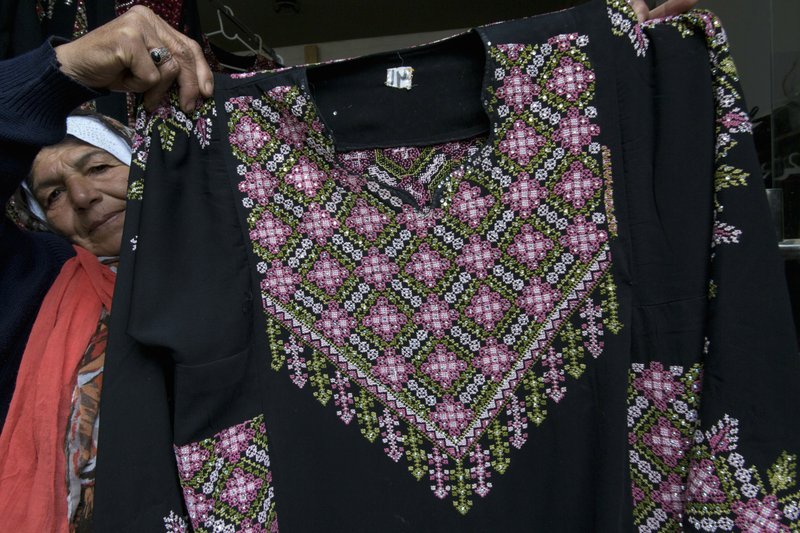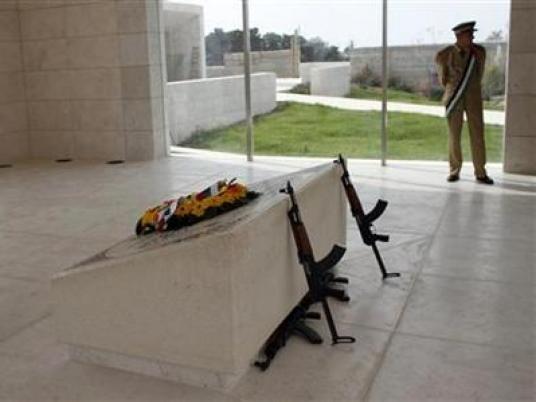
Today 11 November marks the 10th anniversary of death of former Palestinian President Yasser Arafat, known by his companions as Abu Ammar. He was born on 4 August 1929 to al-Qudwa family in Khan Youness city in Gaza. He was the sixth between his siblings. He spent his life for the Palestinian cause, marrying Suha al-Taweel in Tunisia after the age of 60 in 1990. In 1996, they had a daughter, whom he named after his mother Zahwa.

Arafat lived with his mother in Cairo and traveled many times to Jerusalem with her until she died in 1933.
At the age of four after his mother’s death, his father sent him to Jerusalem, where he spent his early childhood and witnessed the beginnings of the Palestinian revolution in 1936. He was raised surrounded by patriotic strugglers, which highly affected him.
In the following year, Arafat moved to live with his father in Cairo, where his finished his elementary education and acquired the Egyptian accent.
He then studied civil engineering in Cairo University (formerly known as King Fouad University) and graduated in 1951.

He traveled after that to Kuwait and worked as an architect. He began to form groups of friends who came to Kuwait from Gaza. These groups were eventually developed into the Fatah movement, which devoted efforts in its armed struggle to liberate Palestine.
During the first Arab summit in 1964, called for by Egyptian deceased President Gamal abdel Nasser, the Palestine Liberation Organization (PLO) was established to express the Palestinians’ will, voice their demands and call for self-determination. In 1969, Arafat became PLO’s head of executive committee. He went from east to west to raise awareness about his cause, meeting every president and leader from all capitals of the world.

Arafat became one of the top participants at the Organization of Islamic Conference, formed in 1969, African summits and the Non-Aligned movement summits. He was elected more than once as vice-president in the Islamic Summit and the Non-Aligned Movement Summit.
Arafat, as well as the PLO, was able to take a decision from the Arab Summit in October 1974, approving the organization as the only legitimate representative of the Palestinian people. The decision lead to recognition by many countries of the organization and rights of the Palestinians, which was resisted by the United States and Israel for 19 years until an agreement arranged in Oslo in 1993.
Arafat gave a historic speech at the UN General Assembly on 13 November 1974.

The Palestinian Intifada broke out against the Israeli occupation in the West Bank and Gaza in 1987, which was supported by Arafat and PLO. The United States then decided that peace cannot be adopted in the Middle East without a resolution for the Palestinian cause. Arab-Palestinian communications were started then leading to an agreement of mutual recognition between Israel and PLO as well as establishing autonomy at lands that Israel withdrew from. The Oslo agreement was signed between Yitzhak Rabin, the then-Israeli prime minister, and Shimon Perez, the then foreign minister, in attendance of Bill Clinton.
On 1 July 1994, Arafat returned back to Gaza, where he was welcomed by hundreds of Palestinian citizens. After thousands gathered, Arafat declared establishment of the Palestinian state with its capital at Jerusalem.
In January 1996, elections were held when Arafat was elected by the head of the Palestinian Authority. Many observers from the UN, Arab and European countries as well as former US President Jimmy Carter monitored the elections.

Arafat then began construction on the liberated lands. Networks of water and electricity were established as well as schools, hospitals and airport. On 24 September 1995, Arafat signed an agreement in the Egyptian Taba city with Rabin, stipulating Israel withdraw from the main cities in the West bank, which was then implemented.
In 1997, Arafat and the Israeli Prime Minister Benjamin Netanyahu signed agreement over restoring Al-Khalil city to the Palestinians. In 1998, the Wye River Memorandum was signed under sponsorship of Clinton over returning more lands at the West bank to Palestinians and opening a crossing between Gaza and the West Bank, while Palestinians vowed resisting terrorism.

The situation deteriorated after failure of negotiations between Arafat and former Israeli Prime Minister Ehud Barak over withdrawal from eastern Jerusalem, which was followed by a visit of former Prime Minister Ariel Sharon to Al-Aqsa Mosque, leading to clashes between the Israeli troops and the Palestinian people leaving victims, which sparked the second Intifada.
Arafat could not control the situation due to the ongoing aggression which reached re-occupation of the freed Palestinian cities at the West Bank.
Ties between Arafat and the US administration, which adopted the Israeli side, worsened. Both of the US and Israel claimed lack of necessary measures as being behind what they called ongoing Palestinian terrorism.

Israeli troops besieged Arafat in his presidential headquarters in Ramallah city in March 2002, then allowed him to move in limited places in the West Bank. He was besieged again after his health deteriorated.
On 27 October 2004, he was taken to France via Jordan. He died the following month in 2004, without knowing the accurate reason behind his death.
Arafat was awarded the Nobel Prize for peace in 1994 along with Rabin and Peres.

Edited translation from Al-Masry Al-Youm



